The Value Investing framework of Benjamin Graham — Warren Buffett's mentor — may not include some foreign stocks and American Depositary Receipts.
Graham
Graham's Value Investing framework is designed to compensate for all typical accounting adjustments that fall within regulations. However, if a stock or ADR falls outside one's legal jurisdiction and has the option of fearlessly fudging numbers, there's really not much any analytical framework can do.
"If and when trouble should come, the owner of foreign obligations has no legal or other means of enforcing his claim."
This issue is a cause for concern across global investment regions and has not yet been addressed satisfactorily in any of them. For now, it would seem prudent to invest in companies that are domiciled within regulatory jurisdictions that one is comfortable with.
Jurisdiction
Legal consequences are the essential deterrent to accounting fraud, and is an integral assumption of the fundamental analysis process. If a company has the option of fearlessly fudging numbers, there is almost no way for an analyst to see through it from the numbers themselves.
So until regulatory authorities — such as the SEC — figure out a similar strategy to dissuade foreign companies from accounting fraud, investors will have to rely on their own discretion to evaluate such stocks.
GrahamValue
GrahamValue gets all its data from its data provider, and is designed to err on the side of caution.
Whenever there is any kind of discrepancy in currencies between the price data and fundamental data for a stock, the stock's Previous Close is marked Zero to prevent it from being accidentally cleared on GrahamValue's screeners.
However, Graham does not explicitly recommend against investing in foreign stocks and ADRs and so no such a filter has been included in GrahamValue's screeners.
The stocks and screeners on GrahamValue do include an HQ field, which can be used to determine if the company is headquartered in a region different from the one where it has been listed.
Graham's seventeen-rule Value Investing framework can be customized for non-U.S. currencies, Interest Rates and Inflation; within any reliable economic jurisdiction.
John Templeton
Sir John Templeton, creator of the world's largest international investment funds — and student of Graham — writes:
"If you search worldwide, you will find more bargains—and possibly better bargains—than in any single nation."
Watch Video
2022 Updates (HQ)
Submitted by GrahamValue. Created on Monday 8th March 2021. Updated on Saturday 8th April 2023.

Comments
How do I know the trusted
How do I know the trusted jurisdiction in America? Also, what are the symbols for each of them on GrahamValue?
Market Identifier Code (MIC) and Countries (HQ)
Dear Omar_H,
Thank you for your comment!
Graham was saying here that you should only invest in markets whose regulatory authorities and judicial system you trust, and where you have the option of legal recourse in case a company you have invested in engages in fraudulent activity.
The regulatory authority for the U.S. is the SEC. But many American investors prefer not to invest in OTC stocks, or in stocks headquartered outside the U.S..
You can therefore use the Search Keywords field on GrahamValue's screeners to look for specific MIC codes such as "XNYS OR XNAS" (without quotes).
Also, you simply have to enter "US" in the Countries (HQ) filter in the Advanced Graham Screener to see only those stocks which are actually headquartered in the United States.
Thank you again for your comment!